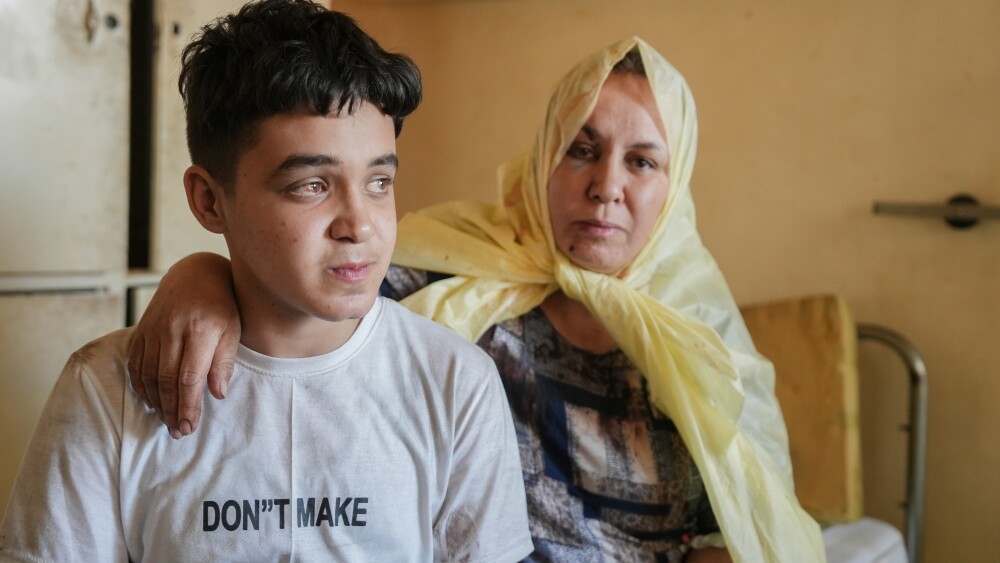DAMASCUS, Syria — The one thing the busloads of Syrian refugees at Jdeidet Yabous, the Syrian side of the main crossing from Lebanon, had in common was excitement to be back. Toddlers and even young teenagers brimmed with excitement; they had never set foot in their country. Their parents readily admitted they never expected to be able to return. Syrian President Bashar al Assad’s fall took them by surprise as much as it did Assad himself and the outside world.
If the skies are clear over Syria today, however, they reflect less smooth sailing than the fact that Syria is in the eye of the hurricane.
The atmosphere at Jdeidet Yabous was relaxed. Families mulled about and took photos, draped in the new Syrian flag. The new Syrian regime maintained a desk just for returnees without papers, but rather than weaponizing bureaucracy, it worked hand in glove with the Office of the United Nations High Commissioner for Refugees to make sure refugees could hit the ground running, both at the border and when they returned to towns and villages that war had transformed into piles of rubble.
Damascus itself provided an illusion of normalcy. Driving in from the west, buildings were intact, commerce bustled, and traffic lights worked. Sure, the Syrian Defense Ministry on Umayyad Square was bombed out, but that was from a precision Israeli strike. Even Assad’s presidential palace stood intact on the mountainside above the Sheraton Hotel frequented by diplomats and government officials. Police from the “Syrian Salvation Government” appeared relaxed. Syrian government officials look to the future, seeking the end of the Caesar Act Sanctions for the imposition of which many Syrian Americans had lobbied when Assad was in power.
If the skies are clear over Syria today, however, they reflect less smooth sailing than the fact that Syria is in the eye of the hurricane, about to get buffeted by forces potentially as devastating as those Syrians just escaped.
The new government is either purposely cynical or in naive denial about its treatment of ethnic and sectarian minorities. They dismiss broad pogroms against Alawis and Druze as targeted operations or responses to provocation. The Alawis now flee into Lebanon as existing Syrian refugees return, creating a revolving door rather than a resolution.
Syrian officials say they can win back the Druze in Suwayda with more aid and assistance. That the Druze would rather cast their lot with Israel than with Damascus demonstrates the depth of local anger that will not evaporate. Unlike the Alawi, the Druze will not flee but will instead fall back upon Israel as a hedge against Sunni extremists in President Ahmad al Sharaa’s governing coalition. For Israel, the calculation is as much about politics as security: Israeli Druze do not vote as a block; they demand Prime Minister Benjamin Netanyahu protect their brethren in return for their votes.
Sharaa’s embrace of Uyghur and Chechen mercenaries who supported the Islamic State while demanding dissolution of the Kurdish militia that fought them is a nonstarter.
Sharaa’s government, meanwhile, dismisses the Kurds’ established federalism and Druze demands for the same, arguing that it would fracture Syria. Syrian officials point to Iraq, its federalism, and disputes between Baghdad and the Iraqi Kurds as a model to avoid. For Kurds, however, Syrian centralization is an existential threat. They will never trust a government whose officials, a few years ago, were beheading them. Sharaa’s embrace of Uyghur and Chechen mercenaries who supported the Islamic State while demanding dissolution of the Kurdish militia that fought them is a nonstarter. Syrians say the fuse is already burning and believe an explosion is inevitable.
Capping off the perfect storm is the planned transfer of Al Hol, the Kurdish-run refugee camp holding Islamic State prisoners, to U.N. administration. While the Kurds might still guard the camp, the move demanded by the Syrians, Turks, and the Trump administration threatens to free thousands of Islamic State prisoners, whom incarceration has only hardened. Even if Sharaa’s moderation is sincere, the influx of hardcore Islamic State members into society will be like throwing gasoline on glowing embers.
President Donald Trump and his Syria envoy, Tom Barrack, may want peace and envision new deals to rebuild Syria, but wishful thinking disconnected from reality will not bring peace. The calm Damascus now enjoys may soon evaporate. The question is whether the broader region is prepared.
Published originally on October 30, 2025.






